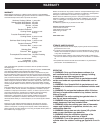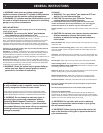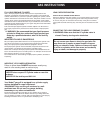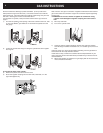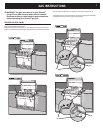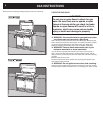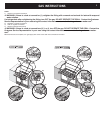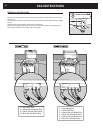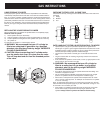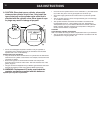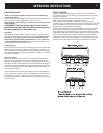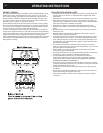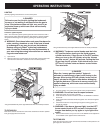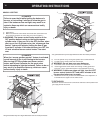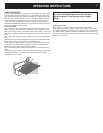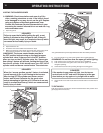Special offers from our partners!

Find Replacement BBQ Parts for 20,308 Models. Repair your BBQ today.

Buy Weber Grill Parts. It couldn't be easier. Find your Weber parts here.
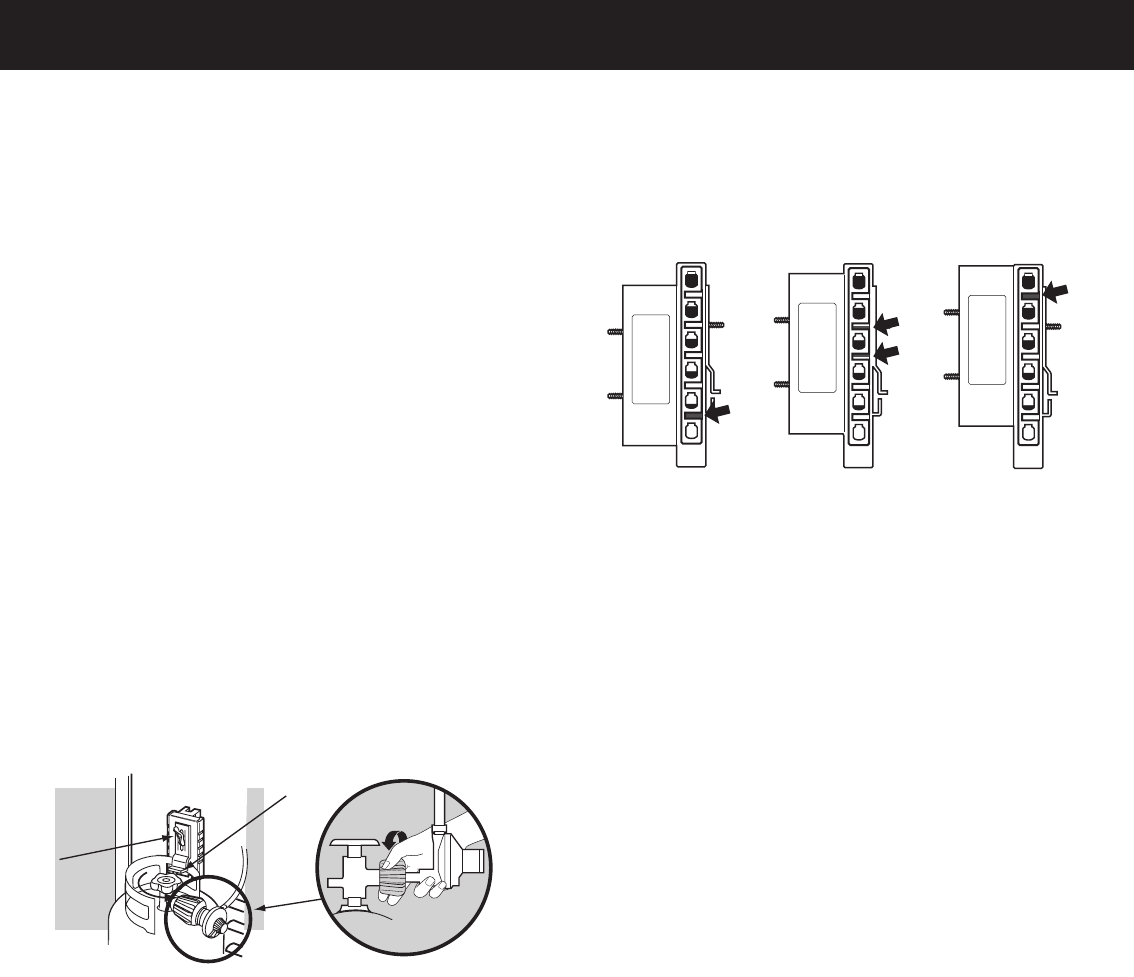
11 11
LIQUID PROPANE CYLINDER
The liquid propane cylinder manufacturer is responsible for the materials,
workmanship and performance of the tank. If the tank has a defect malfunc-
tions, or you have a question regarding the tank, call the tank manufacturer’s
customer service center. The phone number is on the warning decal, which is
permanently attached to the tank. If the tank manufacturer has not resolved
the issue to your satisfaction, then contact the Customer Service Represen-
tative in your region using the contact information sheet provided with your
manual.
REFILLING THE LIQUID PROPANE CYLINDER
We recommend that you refi ll the LP cylinder before it is completely empty.
Removal of the LP cylinder
1) Close cylinder valve (turn clockwise).
2) Unscrew regulator coupling by turning counterclockwise, by hand only.
3) Loosen cylinder lock wing nut and turn cylinder lock up out of the way.
4) Lift cylinder off.
To refi ll, take LP cylinder to a “Gas Propane” dealer.
ƽ WARNING: We recommend that your LP cylinder be
fi lled at an authorized LP gas dealer, by a qualifi ed
attendant, who fi lls the cylinder by weight. IMPROPER
FILLING IS DANGEROUS.
ƽ CAUTION: When transporting the LP cylinder make
sure the plastic dust cover is in place over the valve.
This will keep dust and dirt from the threaded portion
of the valve.
(2)
(1)
(3)
CHECKING THE FUEL LEVEL IN YOUR TANK
Check the fuel level by viewing the color indicator level line on the side of the
tank scale.
1) Empty
2) Medium
3) Full
(1)
(2)
(3)
SAFE HANDLING TIPS FOR LIQUID PROPANE GAS CYLINDERS
• Liquid Propane (LP) gas is a petroleum product as are gasoline and
natural gas. LP gas is a gas at regular temperatures and pressures. Under
moderate pressure, inside a cylinder, LP gas is a liquid. As the pressure is
released, the liquid readily vaporizes and becomes gas.
• LP gas has an odor similar to natural gas. You should be aware of this
odor.
• LP gas is heavier than air. Leaking LP gas may collect in low areas and
prevent dispersion.
• To fi ll, take the LP cylinder to an RV center, or look up “gas-propane” in the
phone book for other sources of LP gas.
ƽ WARNING: We recommend that your LP cylinder be
fi lled at an authorized LP gas dealer, by a qualifi ed
attendant, who fi lls the tank by weight. IMPROPER
FILLING IS DANGEROUS.
• Air must be removed from a new LP cylinder before the initial fi lling. Your
LP dealer is equipped to do this.
• The LP cylinder must be installed, transported and stored in an upright
position. LP cylinders should not be dropped or handled roughly.
• Never store or transport the LP cylinder where temperatures can reach
125° F (too hot to hold by hand - for example: do not leave the LP cylinder
in a car on a hot day).
Note - A refi ll will last about 20 hours of cooking time at normal use. The fuel
scale will indicate the propane supply so you can refi ll before running out. You
do not have to run out before you refi ll.
• Treat “empty” LP cylinders with the same care as when full. Even when
the LP tank is empty of liquid there still may be gas pressure in the
cylinder. Always close the cylinder valve before disconnecting.
GAS INSTRUCTIONS



